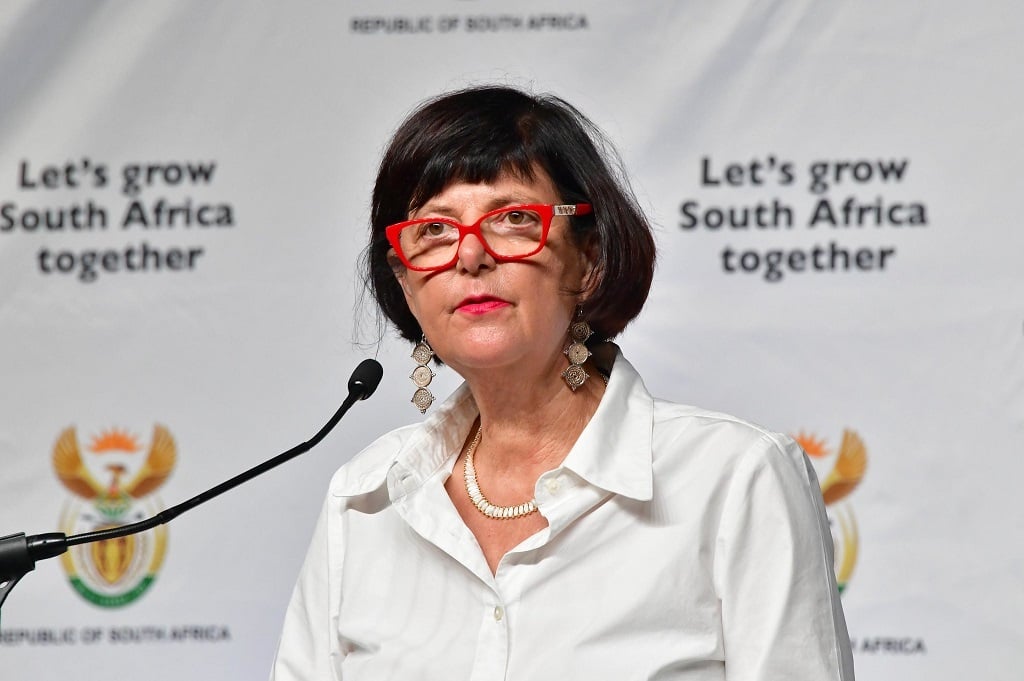
Invasive house mice are highly adaptive omnivores that consume significantly large amounts of vegetation and invertebrates and are driving Marion Island into a state of ecological crisis, but there is a solution, writes Forestry, Fisheries and Environment Minister Barbara Creecy.
- For climate change news and analysis, go to News24 Climate Future.
Marion Island is one of the country's greatest treasures – home to close to half of the world's Wandering Albatross, millions of other seabirds and other species of wildlife, some of which are found nowhere else in the world.
The importance of the archipelago, which forms part of the Prince Edwards Islands group in the south-west Indian Ocean, is reflected in its status as a Special Nature Reserve. This is the highest level of protection afforded by South African environmental legislation.
Marion Island is also recognised as a Ramsar site, a wetland of international importance, and is surrounded by an extensive Marine Protected Area. The outpost truly is a jewel in the crown of the sub-Antarctic realm; and South Africa has a proud record of managing it and undertaking long-term scientific research in support of their conservation.
READ | SA plans biggest-ever island mouse hunt as seabirds are killed off
This research has unfortunately demonstrated how Marion Island faces a grave threat. The house mouse, inadvertently introduced by visiting sealers (seal fishers) in the early 19th century, is causing a devastating impact on the ecology of the island. The invasive mice are highly adaptive omnivores that consume significantly large amounts of vegetation and invertebrates and are driving the island into a state of ecological crisis.
A warmer and drier climate over the last 30 years has contributed to the increase in the densities of mice. This led to the scarcity of the natural food selection (insects and plants) and the mice have resorted to attacking and killing the globally important seabirds for sustenance. Failure to address this threat could result in the local extinction of the majority of the island's seabird species.
Fortunately, there is a solution. In recent decades, advancements in the technology and techniques used to eradicate rodents from large islands have led to increasingly ambitious and successful rodent eradication campaigns.
In a progressive and critical project, the Department of Forestry, Fisheries and the Environment (DFFE) and BirdLife South Africa are collaborating to implement an operation to eradicate the predatory mice from Marion Island, so that its ecosystems can recover, and its seabird populations can flourish.
The operation, Mouse-Free Marion, will be no easy feat. It will involve broadcasting a proven rodenticide bait from helicopter-slung buckets across the entire island.
Challenges include the large size of the island, the remote location and inclement weather. However, South Africa has a good track record of dealing with invasive predators, having previously eradicated feral cats from Marion Island when few thought it was possible. That project stood for many years as the world's largest such island restoration and now South Africa is once more leading the way with its intention to eradicate house mice from an island.
Marion Island will be the largest island to date on which an attempt has been made to eradicate mice in a single operation. But we are not taking up this task alone and have global expertise on island eradications advising and supporting us, ensuring we will be following current best-practice methods to give us the greatest chance of success.
The outcomes of previous similar initiatives show that island rodent eradications have significant conservation advantages. An increasing number of reports indicate how native biodiversity recovers after invasive rodents are eradicated. The Mouse-Free Marion project provides an opportunity to leave a similar long-term, and extremely substantial conservation legacy.
DFFE has committed a substantial amount of support to the project, but there is a significant amount of funds still to raise.
In this regard the Department and BirdLife South Africa have established the Mouse-Free Marion Non-Profit Company to help facilitate the implementation of the project and raise the remaining funds needed to implement the operation. Well over 1 000 South Africans have donated at least R1 000 each towards the eradication efforts, many of them substantially more, with the largest "Sponsor a Hectare" donation by a South African being R228 000.
This level of domestic support is being matched by support world-wide, with one couple having donated R500 000 in their personal capacities. Although these form a small proportion of the total budget requirement, and the majority of funding will come from other sources, it serves to illustrate the level of public support for the project.
Addressing the threat posed by mice will increase the resilience of Southern Ocean seabird populations against other pressures they face, including fisheries bycatch and climate change. This is a proudly South African campaign, but we need the support of the global community to achieve what will be a truly significant and global conservation legacy.
The Mouse-Free Marion Project has six patrons of international standing: South Africa's former Deputy President, Dr Phumzile Mlambo-Ngcuka; HRH The Duke of Edinburgh, Prince Edward; Professor Steven Chown FAA, past-President of the Scientific Committee on Antarctic Research (and experienced Marion Island researcher); French-Japanese television anchor woman, Christel Takigawa; South African business entrepreneur, Gloria Serobe; and seabird author and illustrator, Peter Harrison MBE.
Barbara Creecy is the Minister of Forestry, Fisheries and the Environment.
News24 encourages freedom of speech and the expression of diverse views. The views of columnists published on News24 are therefore their own and do not necessarily represent the views of News24.




 Publications
Publications
 Partners
Partners












